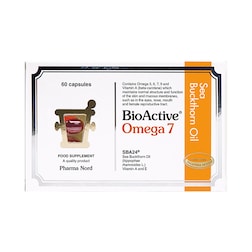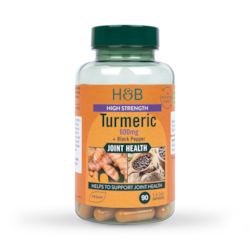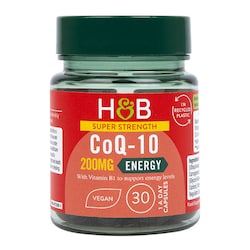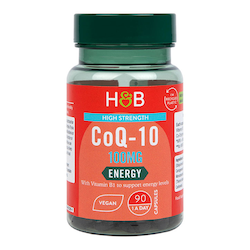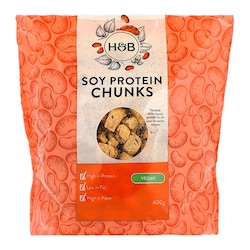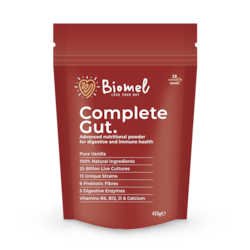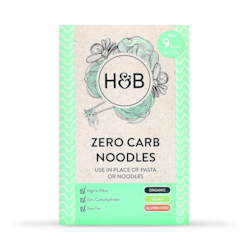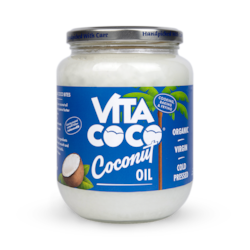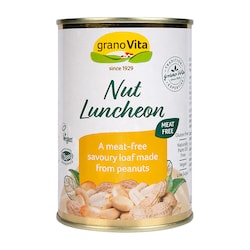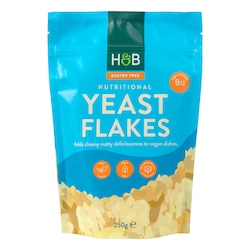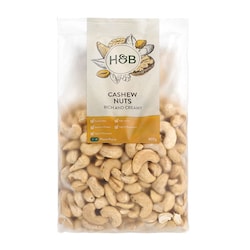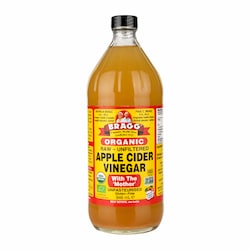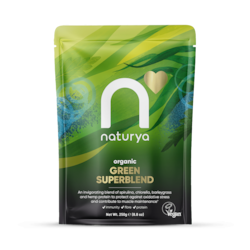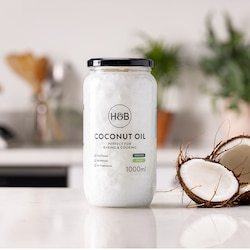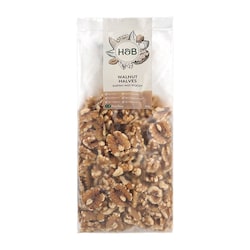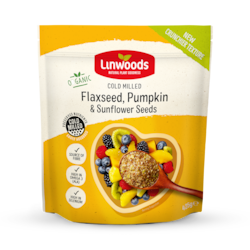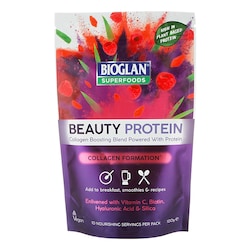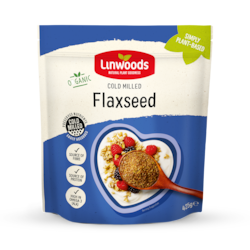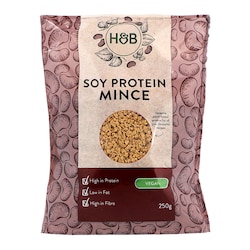20% off £30
Vegan sources of omega-3 foods and supplements

Our top picks
Supports vision, brain & heart
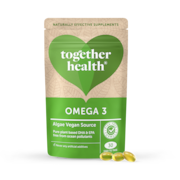
Together Health
Together Natural Algae DHA Omega 3 30 Softgels
25% off
£10.49
£13.99
Supports heart health
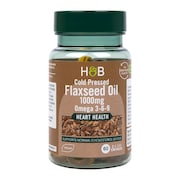
Holland & Barrett
Holland & Barrett Vegan Flaxseed Triple Omega 3-6-9 Oil 60 Capsules
3 for 2 Mix & Match
£10.99
Suitable for vegans
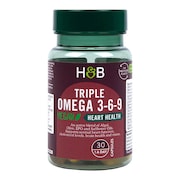
Holland & Barrett
Holland & Barrett High Strength Vegan Triple Omega 3-6-9 Oil 680mg 30 Capsules
3 for 2 Mix & Match
£15.49
What is Omega-3?
- Omega-3 is a group of polyunsaturated fats that are responsible for helping keep our heart, brain, gut, joints and eyes healthy.
- The human body doesn’t naturally make Omega-3, so it’s important we get what we need from our diet and/or by taking supplements.
Why does the body need Omega-3?

- Omega-3 helps keep us healthy in so many ways
- Especially EPA and DHA (two of the three main forms of Omega-3) that protect the heart and blood vessels from disease
- Meanwhile, ALA, the third form of Omega-3, can help lower blood pressure and cholesterol levels
What is DHA?
It’s one of the main three forms of Omega-3 and is essential for brain development during pregnancy and early childhood.
During the first six months of life, DHA is particularly crucial for the development of the nervous system.
Women who are breastfeeding are encouraged to continue taking 200mg to 300mg of DHA a day, Most infant formulas also contain DHA too.3
As with all Omega-3 fatty acids, DHA’s also been linked with improved heart health and vision and reduced inflammation.
More specifically, DHA makes up 97% of the Omega-3 fatty acids that are present in the brain and 25% of the brain’s total fat content.
Summary
- DHA is one of the three main forms of Omega-3
- It’s essential for brain development during pregnancy and early childhood
Plant Omega 3 vs. animal Omega 3
Omega-3 comes in several different forms, including both animal and plant-based sources. As each one has a slightly different structure, Omega-3 is broken down differently in the body, depending on what the source of it is.
As we’ve already established, the three main types of Omega-3 used by the human body are EPA, DHA and ALA. Nuts and seeds, especially walnuts, flaxseeds and chia seeds are rich in ALA, while algae, such as spirulina and chlorella contain EPA and DHA.
Although our bodies convert ALA naturally, the process isn’t very efficient. Various studies suggest that most people convert less than 10 to 20% of the ALA they eat into EPA or DHA.
Consuming too much Omega-6 from vegetable oils or having deficiencies in certain nutrients, such as zinc can also hinder the conversion process.
Summary
- Both animal and plant-based sources of Omega-3 are available
- Nuts and seeds, especially walnuts, flaxseeds and chia seeds are rich in ALA
- While algae, such as spirulina and chlorella contain EPA and DHA
Are vegans usually deficient in Omega-3?
On the whole, people who eat a plant-based diet don’t tend to struggle to get enough Omega-3 in their diet because there are so many food sources that contain it (we’ve listed some examples below).
In fact, one study in particular revealed that people who follow a vegan diet tend to have intakes above the recommended amounts for Omega-3 fats.4
But when it comes to measuring Omega-3 levels, the likelihood of having lower EPA and DHA levels among vegans is, on average, higher.
However, this claim is yet to be backed up by medical studies. Meanwhile, the connection between heart health and a vegan diet has been proven by researchers.
Omega-3 in vegetables
Omega-3 fatty acids can also be found in quite a few different vegetables. Here are some examples of Omega-3 vegetables:5
| Vegetable (1 cup) | Amoun of Omega 3 |
|---|---|
| Green bell peppers | 886mg |
| Red bell peppers | 822mg |
| Cooked kale | 482mg |
| Edamame beans | 472mg |
| Brussels sprouts | 270mg |
| Cauliflower | 207mg |
| Kimchi | 206mg |
| Broccoli | 186mg |
| Spinach | 166mg |
| Globe or French artichokes | 99mg |
| Green cauliflower | 96mg |
| Leeks | 88mg |
| Courgette | 76mg |
| Bok Choy | 39mg |
| Pumpkins | 5mg |
Vegan Omega 3 sources - food
- An abundance of Omega-3 can be found in so many different plant-based food sources, vegetables included
- Algae, flaxseed and chia seeds and peppers, kale and edamame beans contain particularly high levels of Omega-3
Do vegans need to take Omega-3 supplements?
Some of the main Omega-3 supplements include fish oil, krill oil, cod liver oil and algal oil (a vegetarian source that comes from algae).
It’s possible for vegans to get all the Omega-3 they need from their diet.
However, if they aren’t consuming a wide range of plant-based Omega-3 foods, they may find they need to take a supplement to make sure they are getting enough every day.
5 of the best vegan Omega-3 supplements
We've rounded up 5 of the best omega-3 supplements you can take if you're vegan.
Takeaway
Omega-3 is essential for helping keep us all healthy in so many ways, particularly when it comes to eye, brain and heart health.
Fortunately, for vegans, there are plenty of different Omega-3 food sources (nuts, seeds and vegetables) that contain all or some of the three main forms of Omega-3 (DHA, ALA and EPA).
Depending on your diet, you may be able to get all the Omega-3 you need from food – especially as there are so many different vegan Omega 3 sources to choose from.
But if you find that you may be lacking, then it’s possible to easily increase your levels by taking Omega-3 vegan supplements.
Getting enough Omega-3 in your system can be as simple as making sure you’re eating a tablespoon of chia seeds or ground linseed, two tablespoons of hemp seeds or six walnut halves a day, and cooking with vegetable (rapeseed) oil.11
Now that you’re here, we think you may find this article useful, ‘6 of the best vegan calcium sources.’
https://www.ncbi.nlm.nih.gov/pubmed/9637947
https://www.ncbi.nlm.nih.gov/pubmed/8604658
https://www.ncbi.nlm.nih.gov/pubmed/16844912
https://www.ncbi.nlm.nih.gov/pubmed/17616740
https://www.ncbi.nlm.nih.gov/pubmed/22538527
https://www.ncbi.nlm.nih.gov/pubmed/20087375
https://www.ncbi.nlm.nih.gov/pubmed/26892399
https://www.nutraceuticalbusinessreview.com/technical/article_page/Rapid_EPA_uptake_with_algal_oil/99582
https://www.ncbi.nlm.nih.gov/pubmed/25740909


